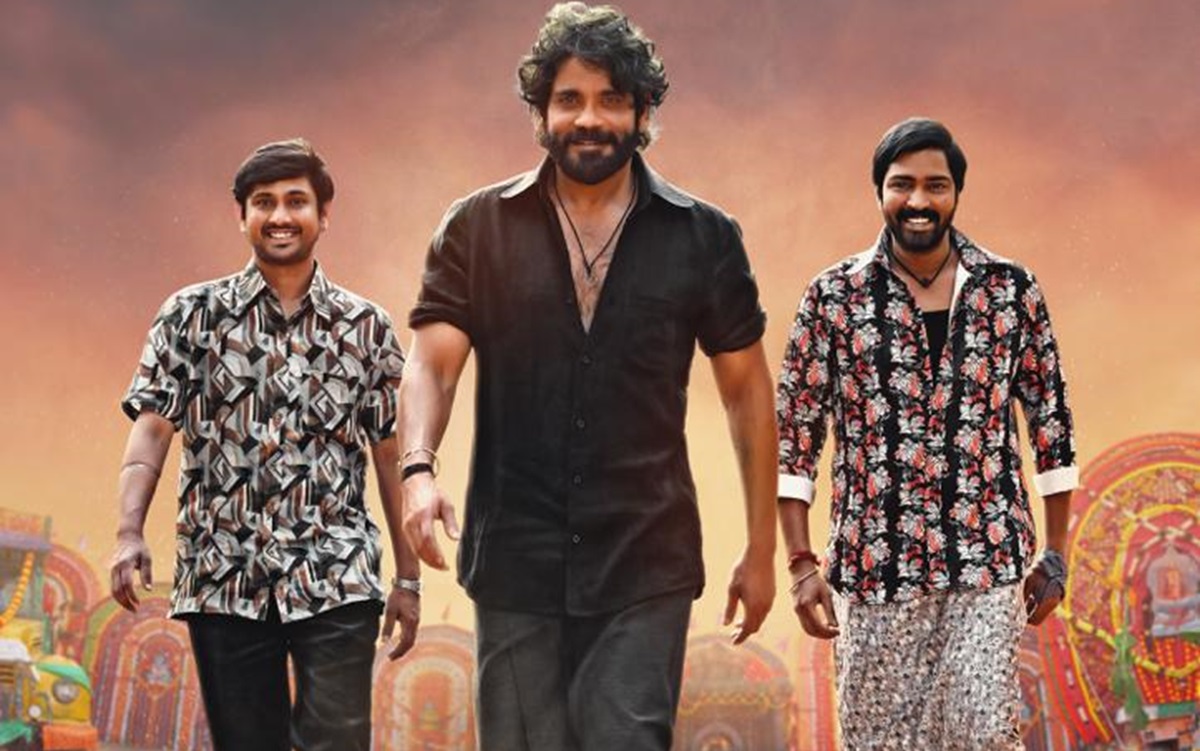Starring: Nagarjuna Akkineni, Allari Naresh, Raj Tarun, Ashika Ranganath, Mirnaa Menon, Rukshar Dhillon, Shabeer Kallarakkal, Ravi Varma, Nassar, Rao Ramesh, Madhusudan Rao
Director: Vijay Binni
Producer: Srinivasa Chitturi
Music Director: M. M. Keeravani
Story:
Set in the village of Ambajipeta, the plot revolves around Kistayya (Nagarjuna), whose family is aided by village President Peddayya (Nasser) during a crisis. Kistayya, a loyalist, is in love with Mahalaxmi, aka Varalu (Ashika Ranganath). However, an unforeseen incident leads to their separation. The story unfolds with Dasu (Shabeer Kallarakkal), Peddayya’s son, harboring ill intentions towards Kistayya and his brother Anji (Allari Naresh). What sparks this rivalry? Why did Varalu and Kistayya part ways? And, how is Bhaskar (Raj Tarun) linked to the narrative? The movie holds the answers to these questions.
Plus Points:
Nagarjuna’s enduring charm and mass appeal, coupled with his striking looks, make for an impressive on-screen presence. His portrayal as an elder brother and loyalist to Nasser is well-received by fans.
Ashika Ranganath deserves appreciation for taking on a challenging role and shines in both beauty and acting prowess, especially in scenes with Nagarjuna.
Allari Naresh delivers an entertaining performance, leaving a lasting impression in the second half.
MM Keeravaani’s music effectively sets the emotional tones, and well-designed pre-climax and climax scenes enhance the movie’s appeal.
Supporting cast delivers satisfactory performances.
Minus Points:
The storyline lacks novelty for Telugu audiences, and the screenplay could have been more effective.
Characters played by Raj Tarun, Shabeer, and Rukshar Dhillon could have been developed further.
Despite neat direction, a more fast-paced screenplay could have elevated the overall impact.
The emotional bond between Allari Naresh and Nagarjuna could have been better portrayed in the first half, influencing scenes in the latter half for enhanced entertainment.
A more vigorous portrayal of the villain and thoughtful placement of a couple of songs could have improved the overall experience.
Technical Aspects:
Director Vijay Binni handles the film effectively, but a more focused effort on a gripping screenplay could have yielded better results.
MM Keeravaani’s impressive background score elevates numerous scenes, capturing the right mood for love, action, and sadness.
Nice editing and cinematography contribute to the film’s quality with appreciable production values.
The art department deserves recognition for its valuable contributions.
Verdict:
Naa Saami Ranga, overall, is a watchable village drama with decent performances from Nagarjuna, Allari Naresh, and Ashika Ranganath. The slow-paced first half and the absence of significant highlight sequences pose as the main hurdles. While the movie may not appeal to all sections of the audience, it promises enjoyment for mass and family audiences this festive season.
